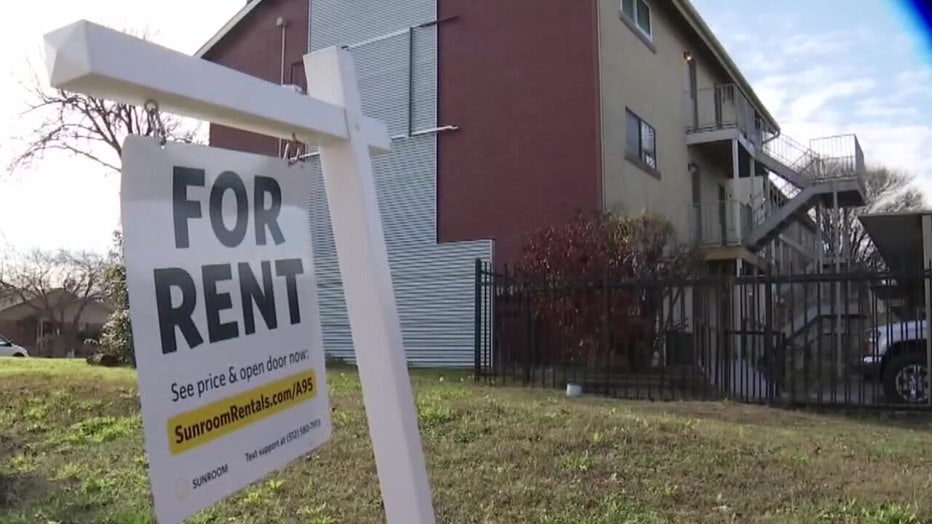Florida's affordable housing crisis: proposed solutions
TAMPA - Jennifer Peters fulfilled her dream of becoming a teacher.
"Ever since I was a child, that's the only thing that I've ever wanted to be," she said.
Becky Robinson is a home health aide with a passion for helping seniors.
"I'm very dedicated to what I do. I'm very good at what I do," she noted.
Brad Butler takes pride in his work as a carpenter and builder.
"I do great work. I work as hard as I can," he told us.
All three fill critical needs in fields that have a shortage of workers. But home costs have risen much more than their paychecks, which helps explain why we're short on teachers.
"And it doesn't make sense for teachers to continue to teach when they can't afford to live here," Peters said.
READ MORE: Florida’s Affordable Housing Crisis: The Troubled Path part 1 of 4
It’s why we have a growing shortage of healthcare workers.
"The ones that are going to suffer, the people that I serve, and that's very heartbreaking to me," said Robinson.
And it’s how this all relates to a shortage of new homes that builders who remain in the industry cannot afford themselves.
"Why can't I afford what I used to be able to afford five, ten years ago without a problem?" asked Butler. "I'm working even harder than I did then, but nothing changed it. It's only getting worse."
The soaring cost of homes is pushing people further from work, which is causing more bumper-to-bumper traffic. Our transportation, education and health care challenges all tie into the affordable housing crisis.

Proposed solutions for Florida's affordable housing crisis.
And it's also driving vital workers out of Florida and putting many who stay in distress.
"They're making it impossible for anybody to get a step up," Robinson added.
State lawmakers are trying to help by subsidizing apartment builders that cap how much they charge for rent in some of their units. But in our area, a cap of $2,500 a month for two bedrooms is too much for Jennifer, Becky, Brad and many others.
"At one point, there may have been a shortage of housing in that price point, but we're well beyond that now," said St. Petersburg City Councilman Richie Floyd. "Workforce housing, is really a misnomer. It's focused on an income level that is not struggling. It's more money than I personally make."
The state could address that by lowering rent limits for developers rather than accepting subsidies and tax breaks.
Progressives support local rent control. The state has banned it on grounds it would discourage construction, and landlords would be less likely to maintain the properties.
Floyd wants his city and other local governments to directly fund the construction of affordable homes, and own and run them.
"And we can build housing for people's needs and not for investor profits," he said.
READ MORE: Florida’s Affordable Housing Crisis: Fueling the Crisis part 2 of 4
Cities in Florida are not doing that due to the cost to taxpayers, and the financial risk if local governments neglect and mismanage their properties.
Conservatives like Mike Beltran trust the private market to over public funding, and subsidies.
"Well, housing is unaffordable because of government," he said. "And the idea that government is going to solve a problem that it created. I just reject that notion."
Former State Senator and Florida Policy Project President Jeff Brandes urges cities to be more flexible in zoning. He also suggests deadlines to reduce permitting time, easing parking space requirements for new homes, allowing smaller lot sizes and allowing more single-family homes to convert into multi-family homes.
"Over time, more and more communities have focused on single family homes, on quarter acre lots, and that's kind of become the traditional norm," he said. "Tampa Bay is full of homes that were built in the 1950s and 60s that are ripe for redevelopment. And unfortunately, because of our current zoning laws, I can change that single family home out with another single family home. But that doesn't add any additional capacity to the marketplace."
The National Association of Home Builders says we could reduce new home prices by reducing building costs.
The home construction lobby proposes expanding timber harvesting in the U.S., reducing tariffs on timber & building supplies from other countries, and expanding immigrant work visas for construction workers.
WATCH FOX 13 NEWS:
STAY CONNECTED WITH FOX 13 TAMPA:
- Download the FOX Local app for your smart TV
- Download the FOX 13 News app for breaking news alerts, latest headlines
- Download the SkyTower Radar app
- Sign up for FOX 13’s daily newsletter

